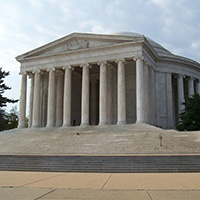Mount Hope Criminal Lawyer, Alabama
James Paul Atkinson
✓ VERIFIEDAccident & Injury, Divorce & Family Law, Lawsuit & Dispute, Criminal
James Atkinson is a practicing lawyer in the state of Florence, AL.
Eddie Beason
Criminal, Estate Planning, Family Law, Insurance, Personal Injury
Status: In Good Standing
S. Wayne Fuller
Wills & Probate, Divorce & Family Law, Criminal, Accident & Injury, Wills & Probate
Status: In Good Standing
Christy Williams Graham
Other, Government, Criminal, Accident & Injury
Status: In Good Standing Licensed: 23 Years
John Eric Burnum
Real Estate, Government, Divorce & Family Law, Criminal
Status: In Good Standing Licensed: 33 Years
Mark Anthony Dutton
Power of Attorney, Child Custody, Divorce & Family Law, DUI-DWI, Criminal
Status: In Good Standing Licensed: 33 Years
John Andrew Posey
Child Custody, Divorce & Family Law, Criminal, Bankruptcy & Debt
Status: In Good Standing Licensed: 42 Years


